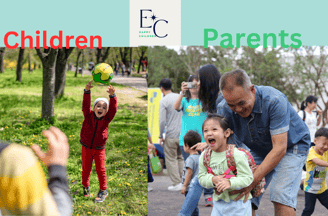How to strengthen parent child relationship ?
Effective strategies strengthening parent-child relationships at home This comprehensive guide covers essential topics, including active listening, encouraging parent child relationship
9/29/20246 min read


Strengthening Parent-Child Relationships at Home
Fostering a strong relationship between parents and children is vital for a child's emotional and psychological growth. A supportive bond establishes trust, effective communication, and resilience, influencing a child’s self-esteem and social skills. Recognizing the long-term benefits of a healthy parent-child relationship is essential, as it shapes a child's mental health and overall well-being. Parents can adopt various strategies to enhance this crucial connection, focusing on understanding, empathy, and mutual respect within the family.
Active listening is a powerful tool for improving communication between parents and children. This means fully engaging with your child during conversations—truly hearing their words while also grasping their feelings and viewpoints. By practicing active listening, parents validate their children’s emotions, making them feel valued. This approach fosters a deeper connection, encouraging children to communicate openly. Additionally, effective listening helps parents identify non-verbal cues, leading to richer, more meaningful interactions.
In our fast-paced world, prioritizing quality family time can be challenging. Nevertheless, regularly dedicating time for shared activities—like playing games, cooking, or reading together—can significantly enhance the parent-child bond. These shared experiences create cherished memories and convey to children that they are loved and important. Establishing a routine that includes family activities encourages everyone to look forward to these bonding moments, reinforcing the importance of family connection.
Promoting open dialogue is crucial for developing a healthy relationship. Creating a safe space for children to express their thoughts and feelings encourages meaningful conversations. Parents can foster this environment by asking open-ended questions and showing genuine interest in their child’s experiences. This openness builds trust and emotional security, allowing children to feel comfortable sharing their challenges and successes. When children know their parents are willing to listen and support them, they are more likely to engage in productive conversations.
Understanding the various developmental stages of childhood is essential for improving relationships. Each stage presents unique challenges and needs that parents must navigate. By familiarizing themselves with these developmental phases, parents can tailor their communication styles and expectations. For example, toddlers may require more patience, while teenagers often seek independence. Recognizing and respecting these milestones allows parents to create a supportive environment that nurtures their child’s growth and encourages open communication.
Establishing consistent routines provides stability and security, which are crucial for a child's emotional health. Regular family activities—such as shared meals or bedtime rituals—enhance feelings of safety and belonging. These predictable structures help children understand what to expect, reducing anxiety and promoting a sense of normalcy. Additionally, routines create opportunities for families to bond through shared experiences, fostering positive interactions and reinforcing relationships.
Practicing empathy is another key element in enhancing parent-child relationships. Empathy enables parents to comprehend their child’s perspective, deepening emotional connections. By understanding their child’s feelings, parents can respond more compassionately to their concerns. This nurturing practice fosters an environment where children feel accepted and understood, promoting open expression of their emotions. When parents model empathy, they teach children the importance of compassion, benefiting their future relationships.
Encouraging independence and responsibility is vital for a child’s development and can strengthen family bonds. By allowing children to take on age-appropriate responsibilities, parents instill confidence and self-reliance. This empowerment demonstrates trust, showing children that they are capable individuals. When children feel their parents believe in their abilities, it nurtures a positive self-image and enhances their relationship with caregivers.
Conflict is a natural part of any relationship, and teaching children how to manage it effectively can enhance family dynamics. Parents should model healthy conflict resolution techniques, demonstrating how to approach disagreements respectfully. Guiding children through conflicts helps them develop essential life skills for future interactions. This approach not only strengthens family bonds but also equips children to handle disputes more effectively outside the home.
Emphasizing effort over results can significantly improve parent-child dynamics. Recognizing and celebrating hard work encourages a growth mindset, motivating children to persist regardless of outcomes. When parents focus on effort, they help children view mistakes as learning opportunities. This perspective builds resilience and determination, allowing children to form a healthier relationship with challenges. It reinforces the idea that they are valued for their efforts and character, not just their achievements.
Being a positive role model is crucial for influencing a child's behavior and mindset :
Children often imitate their parents, so demonstrating positive behaviors—like kindness, respect, and patience—teaches them valuable life lessons. By modeling healthy interactions, parents instill these traits in their children, fostering a nurturing environment that promotes positive relationships both at home and in the broader community. When children see their parents handling situations with grace, they are likely to adopt similar behaviors in their own lives.
Utilizing positive reinforcement effectively shapes behavior and creates a harmonious home atmosphere. Acknowledging and rewarding good behavior encourages children to repeat those actions, reinforcing positive patterns. Parents can implement this technique through praise, small rewards, or quality time together, making it clear that good behavior is appreciated. This strategy boosts children’s confidence and contributes to a more positive household environment.
Establishing loving boundaries is essential for a healthy parent-child relationship. While nurturing closeness is important, setting clear and consistent limits helps children understand expectations and consequences. Communicating these boundaries lovingly ensures that children feel secure rather than restricted. When children grasp the reasoning behind their limits, they are more likely to respect them, leading to a structured and peaceful home life.
Encouraging creativity and self-expression is key to enhancing a child’s confidence and strengthening the parent-child relationship. Supporting children in creative activities—such as art, music, or writing—allows them to explore their identities and interests. Parents can foster creativity by providing resources and opportunities for exploration, encouraging children to express themselves freely. This support not only nurtures their creativity but also reinforces that their individuality is valued and celebrated.
Promoting emotional literacy is vital for improving parent-child relationships. Teaching children to recognize and articulate their emotions enhances their emotional intelligence, essential for healthy relationships. Parents can facilitate discussions about feelings, encouraging children to express themselves and develop a vocabulary for their emotions. Regularly addressing feelings equips children to navigate their emotions effectively, benefiting their relationships both at home and beyond.
Regular family meetings provide an effective platform for open communication, allowing every member to share their thoughts and feelings. This inclusive approach fosters collaboration and strengthens family bonds, teaching children the value of listening and respectful expression. During these gatherings, families can address issues, plan activities, and celebrate accomplishments together, creating a supportive environment that encourages participation and connection.
Finding common interests is another impactful way to enhance parent-child relationships. Discovering shared hobbies—whether in sports, reading, or movies—offers opportunities for bonding through enjoyable activities. Engaging in mutual interests not only creates lasting memories but also promotes teamwork and cooperation. When parents and children participate in activities they both enjoy, it strengthens their connection and enhances mutual understanding.
Encouraging problem-solving skills fosters independence and critical thinking in children. Parents can empower their children by guiding them through the problem-solving process instead of providing immediate solutions. This approach encourages children to think critically and consider various options before reaching a conclusion. By helping them navigate challenges, parents enhance their children's skills and instill confidence in their ability to manage difficult situations.
Being present and attentive is crucial in today's distraction-laden environment. Dedicating undivided attention to your child during conversations or activities shows them they are valued. When parents actively engage with their children—setting aside phones and minimizing distractions—they foster deeper connections and emphasize the importance of personal interactions. This presence not only strengthens the parent-child bond but also models healthy communication practices for the future.
Sharing family stories and traditions enhances the sense of belonging within a household. Discussing family history, values, and experiences creates a narrative that helps children understand their roots and identity. These stories often impart important lessons and values, instilling pride and connection to family heritage. Celebrating traditions—whether cultural or personal—further strengthens family ties and creates shared experiences that children will cherish throughout their lives.
Balancing discipline with love is crucial for effective parenting. Enforcing rules and boundaries is necessary, but it’s equally important to explain the reasoning behind them. When children understand that discipline aims to guide them rather than punish them, they are more likely to respond positively. Parents should create an environment where discipline is seen as a form of care, reinforcing the notion that boundaries are set for the child's well-being.
Supporting educational growth is essential for enhancing parent-child relationships. Being actively involved in your child's education—through attending school events, helping with homework, or discussing their interests—demonstrates the value of learning and personal development. This involvement shows children that education is important and strengthens the bond between parents and children as they work together towards common goals.
Facilitating social connections is vital for children's development and can enhance their relationships at home. Providing opportunities for children to interact with peers boosts their social skills and expands their support network. These connections help children feel more secure and confident, both at home and in their community. Parents can promote social interactions by organizing playdates or group activities, which allow children to cultivate friendships and develop essential social skills.
Foster positive learning environment for young minds with perfect advices
© 2024. All rights reserved.
